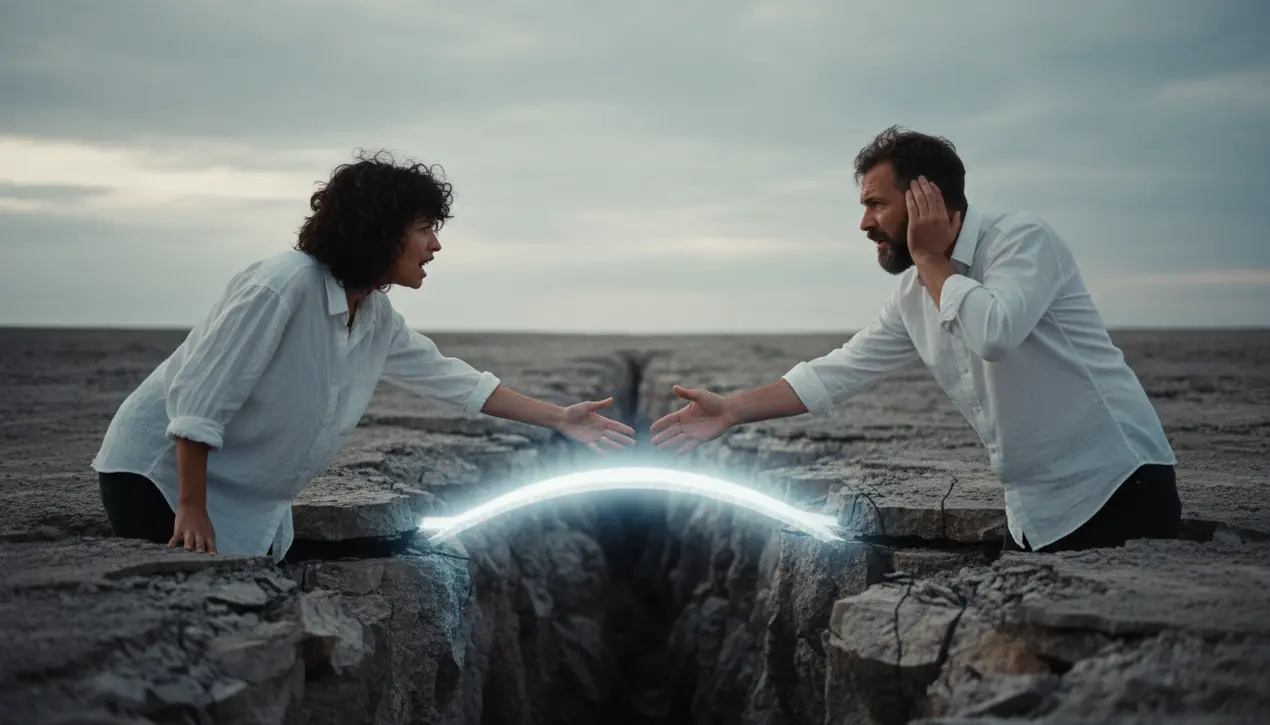
OthereducationOnline Learning
The Art of Listening: A Humanist's Guide to Mending Fractured Communication
LA
Laura Bennett
8 hours ago7 min read5 comments
It begins with a spark—a connection so electric it makes you forget the fundamental solitude of being an individual consciousness. Then, one day, you find yourself clinging to the edge of a chasm, realizing you and another person are having profoundly different experiences of the same shared reality.This is the moment of communication breakdown, a perilous gap that opens not only between romantic partners but between colleagues, friends, and family. I recently spoke with a couple, Mark and Sarah, who were stranded on opposite sides of this divide.After months of planning a coastal vacation, they were at an impasse. For Mark, the trip was a logistical flowchart to be optimized; for Sarah, it was an emotional journey to be curated.They weren't just arguing about hotels; they were speaking different existential languages, and every attempt to bridge the gap only widened it. This phenomenon extends far beyond the personal sphere.I recall a team of brilliant software engineers whose project nearly collapsed under the weight of a single misunderstood word. One group interpreted 'urgent' as 'address this week,' while the other heard 'abandon all other tasks immediately.' The resulting silence was more devastating than any heated argument—a dense fog of mutual incomprehension where everyone felt perfectly rational and completely invisible. In 1951, against the backdrop of the Cold War—a global-scale communication failure—the influential psychologist Carl R.Rogers offered a radical solution at the Centennial Conference on Communications. He argued that the core obstacle is not a deficit of information, but our profound inability to escape our own subjective viewpoints.We are, he suggested, prisoners of our personal realities. Rogers's escape plan begins not with talking, but with a revolutionary kind of listening.This is not the passive, patient-waiting-for-a-pause listening we typically practice. It is active, empathetic listening, where the primary objective is to fully grasp the other person's internal frame of reference.This requires consciously setting aside our own opinions, judgments, and the deep-seated need to be right. It involves reflecting their perspective back to them to ensure accuracy: 'So, if I'm hearing you correctly, you felt sidelined when I booked the hotel alone, because for you, the planning process was a core part of our shared adventure?' This act of validation is not capitulation; it is the strategic laying of a foundation for mutual understanding.A second, crucial principle Rogers championed is 'unconditional positive regard'—a wholehearted, non-judgmental acceptance of the other person as a separate and valid individual. In practical terms, this means approaching a difficult conversation not as a battle to be won, but as a shared puzzle to be solved together.It's the shift from declaring, 'You are wrong,' to inquiring, 'Help me see this from your perspective. ' I am reminded of a father and son, locked in a years-long conflict over the son's career path.Their breakthrough arrived not with a perfectly crafted argument, but with the father's simple, vulnerable admission: 'I am trying to see this through your eyes, and it's hard for me, but I want to. ' The son later confessed that this single sentence did more to heal their relationship than a decade of well-intentioned advice.The final component is genuineness, or congruence. We must be authentic.We cannot feign attention while internally rehearsing our rebuttal. This vulnerability is daunting—it forces us to admit that our understanding might be partial, that our reality is merely one version of the truth.Yet, it is this shared exposure that forges the most resilient bonds. In an era of intense polarization, from dinner table debates to international diplomacy, Rogers's human-centered methodology is more than a therapeutic technique; it is an essential survival skill.It calls on us to lay down our weapons of absolute certainty and take up the tools of empathy. This is the difficult, humble labor of constructing a bridge across the abyss, one genuine exchange at a time, until we can finally meet in the middle—not as opponents, but as collaborators in the fight against the common foe of miscommunication.
#communication
#psychology
#Carl Rogers
#conflict resolution
#interpersonal skills
#featured
Stay Informed. Act Smarter.
Get weekly highlights, major headlines, and expert insights — then put your knowledge to work in our live prediction markets.
Related News
Comments
Loading comments...
© 2025 Outpoll Service LTD. All rights reserved.